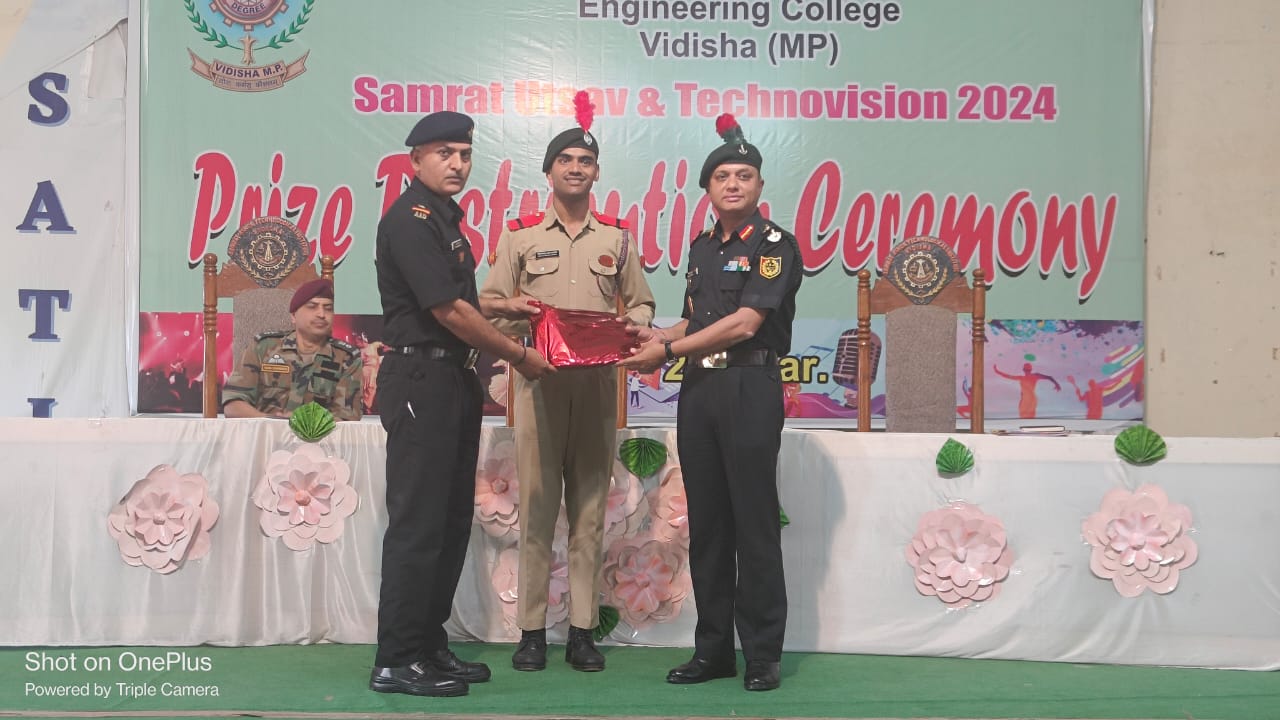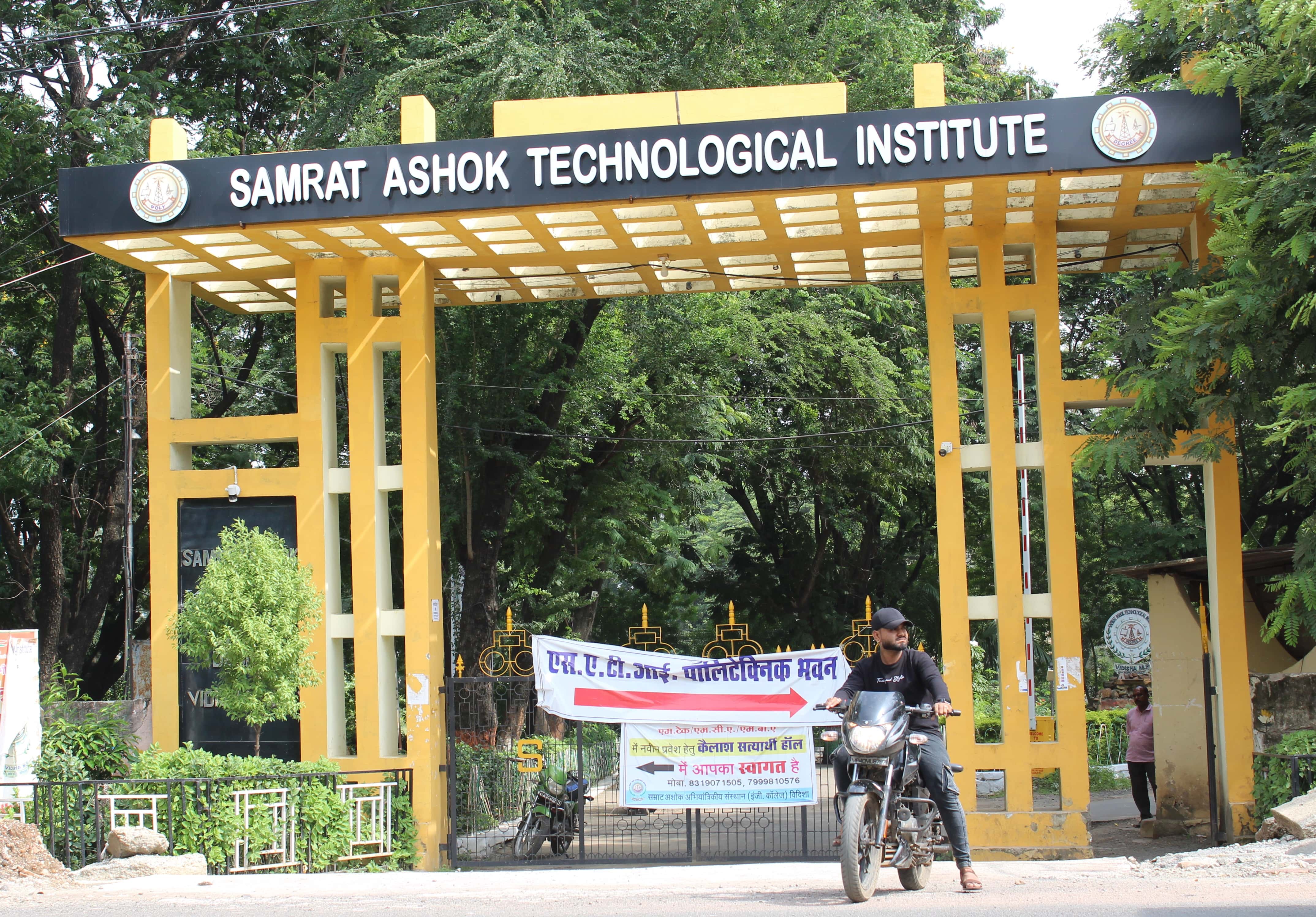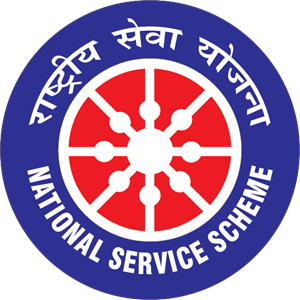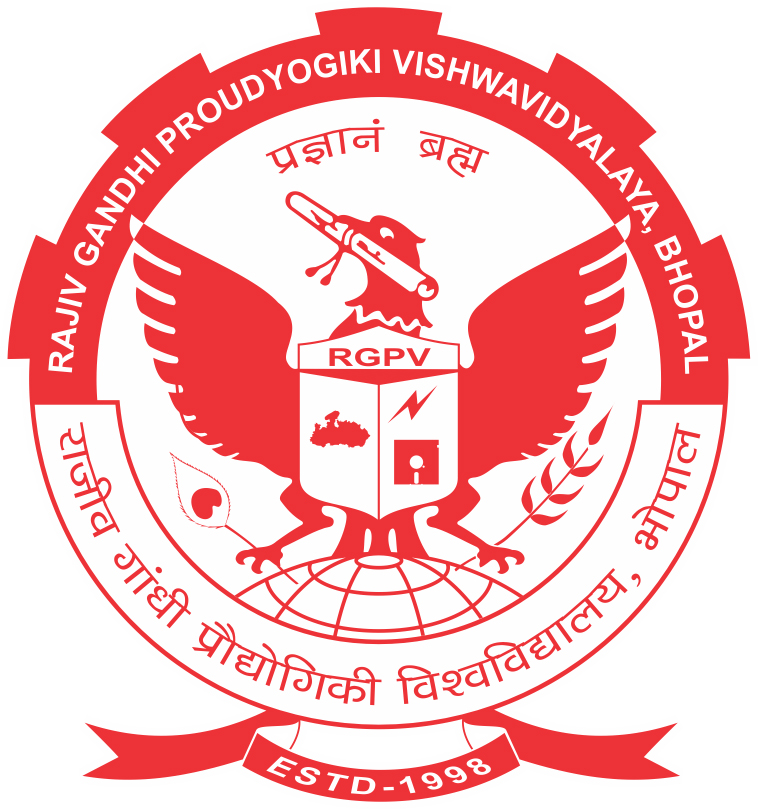- 07592-250373 , 90099-92011 , 91799-49206
- info@satipoly.ac.in


NCC


National Cadet Corps (NCC)
“Accept responsibility for your life, Know that it is you who will get you where you want to go, No one else”.
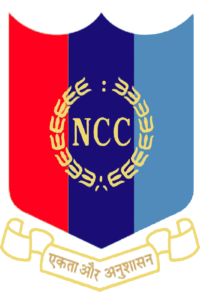
The National Cadet Corps is one of the largest youth organizations in India as well as in the World . National Cadet Corps is a Tri-Services Organization comprising the Army, Navy and Air Force, engaged in grooming the youth “The Leaders of Tomorrow" into disciplined and patriotic citizens. After independence the present day NCC is under the Ministry of Defense. NCC came into existence on 16 Apr 1948 through NCC act XXXI, 1948. It is a youth movement. It has enormous potential for nation building and has developed into a valuable auxiliary to the education system. Today the NCC has more than 16 Lakh strength. National Cadet Corps (NCC) day is celebrated every year on the fourth Sunday in the month of November.
Organization
The National Cadet Corps is headed by a Director General, an Army Officer of the rank of Lieutenant General, who is responsible for the functioning of the National Cadet Corps in the country through the National Cadet Corps Headquarters situated at Delhi. At the State Level, the country has been divided into 17 Directorates covering all States and Union Territories. Each of the State National Cadet Corps Directorate Headquarters controls two to fourteen Group Headquarters. While Directorates are commanded by Brigadiers or their equivalents, the Groups are commanded by Colonels or equivalents. Army unit is commanded by Lieutenant Colonel or equivalent, Air Force unit is commanded by Wing Commander or equivalent and Navy Units is commanded by Captain or their equivalents. In college and school NCC troop is controlled by Associated NCC Officer (ANO).
Aims of NCC
- 1. To develop character, comradeship, discipline, leadership, secular outlook, spirit of adventure, sportsmanship and ideals of selfless service among the youth of the country.
- 2. To create a human resource of organized, trained and motivated youth, to provide leadership in all walks of life and always be available for the service of the nation.
- 3. To provide a suitable environment to motivate the youth to take up a career in the Armed Forces.
Motto of NCC
"Unity and Discipline (Ekta aur Anushasan)"
DG's four Cardinal Principals of Discipline
Obey with a smile
Be Punctual
Work hard and without fuss
Make no excuses and tell no lies
Oath
"I do hereby solemnly promise that I will serve my motherland most truly and loyally and that, I will abide by the rules and regulations of the National Cadet Crops. Further under the command and control of my commanding officer I will participate in every camp most sincerely and wholeheartedly".
Pledge
We the cadet of the national cadet corps, do solemnly pledge that we shall always uphold the unity of india.We resolve to be disciplined and responsible citizen of our nation.We shall undertake positive community service in the spirit of selflessness and concern for our fellow beings.
NCC History
The NCC in India was formed with the National Cadet Corps Act of 1948. It was raised on 15 July 1948 The National Cadet Corps can be considered as a successor of the University Officers Training Corps (UOTC) which was established by the British in 1942. During World War II, the UOTC never came up to the expectations set by the British. This led to the idea that some better schemes should be formed, which could train more young men in a better way, even during peace times. A committee headed by Pandit H.N. Kunzru recommended a cadet organization to be established in schools and colleges at a national level. The National Cadet Corps Act was accepted by the Governor General and on 15 July 1948 the National Cadet Corps came into existence.
During the 1965 and 1971 wars with Pakistan, NCC cadets were the second line of defence. They organised camps to assist the ordinance factories, supplying arms and ammunition to the front, and also were used as patrol parties to capture the enemy paratroopers. The NCC cadets also worked hand in hand with the Civil Defence authorities and actively took part in rescue work and traffic control. After the 1965 and 1971 Indo-Pak wars the NCC syllabus was revised. Rather than just being the second line of defence, NCC syllabus laid a greater stress on developing qualities of leadership and Officer-like qualities. The military training which the NCC cadets received was reduced and greater importance was given to other areas like social service and youth-management.
History of Department
The NCC Department is one of the pioneer departments of the college. It is established in 1988.This department is under the control of 14 MP Bn NCC VIDISHA. Our group headquarter is at Bhopal capital of Madhya Pradesh. Major Sanjeev Kumar Mathur took the charge of NCC Company on 01/01/2000 and Commission granted on 10 May 2001. The NCC department of the college has access to 107 Boys cadets. The department is in full progress in its glory. The department has contributed significantly to various activities. The NCC is open to all regular students of the college on a voluntary basis. Every year in the month of July on wards the students are informed about the fresh enrolment (only for the first-year students). Here cadets are trained like soldiers and trained to face any kind of hardships that come their way. Apart from regular parade, cadets of the college also take part in various activities such as, weapon training, national integration, historical, geographical and religious background of India, leadership training, first aid, aid to civil authorities, civil defense, ecology/nature awareness, self-defense, giving information about NCC, hygiene and sanitation, social service, adventure training, map reading, field craft, firing, military history. The cadets of the college actively participate in various national camps and competition.
NCC Flag

NCC Flag Contains NCC Crest in gold in the middle, with the letters "NCC" encircled by a wreath of seventeen lotus with a background in Red, Blue and Light blue.Red depicts the Army, Deep Blue depicts the Navy and Light Blue depicts the Air Force. The seventeen lotuses represent the 17 State Directorates. "Unity of Discipline" (Ekta aur Anushasan) is written at the bottom of the NCC Flag.
NCC SONG
HUM SAB BHARTIYA HAI, HUM SAB BHARATIYA HAI
APNI MANZIL EK HAI,
HA HA HA EK HAI, HO HO HO EK HAI,
HUM SAB BHARTIYA HAI
KASHMIR KI DHARTI RANI HAI, SARTAJ HIMALAY HAI
SADIYON SE HAMNE ISKO APNE KHOON SE PALA HAI
DESH KI RAKSHA KI KHATIR, HUM SHAMSHEER UTHA LENGE
HUM SHAMSHEER UTHA LENGE
BHIKRE BHIKRE TARE HAI HUM LEKIN JILMIL EK HAI
HA HA HA HA EK HAI, HUM SAB BHARTIYA HAI
MANDIR GURDWARE BHI HAI YAHAN, AUR MASZID BHI HAI YAHAN
GIRJA KA GHADIYAL KAHIN MULLA KI KANKHI HAI AJHA
EK HI APNA RAM HAI, EK HI ALLAH THALA HAI
EK HI ALLAH THALA HAI
RANG BIRANGE DEEPAK HAI HUM, LEKIN MAHAFIL EK HAI
HA HA HA EK HAI, HO HO HO EK HA
HUM SAB BHARTIYA HAI, HUM SAB BHARTIYA HAI
Centrally Organized Camps
- Leadership Camp
- Vayu Sainik Camp
- Nau Sainik Camp
- Rock Climbing Camp
- Trekking camp
- National Integration Camp (NIC)
- Thal Sainik Camp (TSC)
- Army Attachment Camp (AAC)
- Airforce Attachment Camp (AAC)
- Republic Day Camp (RDC)
- Annual training Camp(ATC)
Training
Training Activities:-
Training forms the backbone of N.C.C. N.C.C.provides different types of training activities to the Cadets. The training activities are broadly divided into four categories –
- Institutional Training
- Adventure Training
- Youth Exchange Programme
- Community Development Programme/Social Service Activities
Institutional Training:
Drill, shooting, Physical fitness, map reading, First aid, Gliding/Flying, boat pulling, sailing and camp training covering basic of military training in Army, Navy and Air Force.
This training is mostly carried out in schools and colleges by the cadets. In addition, depending upon the type of service, basic knowledge of that service is imparted to the cadets e.g gliding , powered flying for Air Wing cadets and boat pulling, sailing for Naval Wing cadets form part of institutional training. These activities comprise approximately 50% of the entire syllabus.
This is the most imp aspect of NCC Trg and hence great emphasis on institutional trg to be given. State DDG's to issue comprehensive instrs on organising the Institutional Trg at Gp / Unit level.
Following actions will be taken to improve the standard of trg.
- Optimum utilization of PI Staff for Trg.
- Greater involvement of Offrs, WTLO's and ANO's.
- Youth Exchange Programme
- Deficiencies in trg aids will be made up expeditiously.
Basic Training:
1. DrillCadets must be made to understand the aim and purpose of teaching drill, so that they are suitably motivated and do not take it as "fatigue". Emphasis will be laid on correct bearing, marching, saluting and arms drill. Inter-squad competitions may be organized to create interest.
2. Weapon TrainingCadets generally take keen interest in wpn trg and firing. Units must liaise with nearby Service and Para-Military Units to ensure that all cdts get an opportunity to fire their authorized amn. Use of firing simulators may be made to optimize trg efforts where possible.
Adventure Training:
Adventure activities have been incorporated in NCC training with the aim of inculcating and strengthening leadership traits amongst the cadets. These activities in NCC can be broadly divided into the following.
- Land based - Mountaineering,Rock Climbing,Trekking, Mountaineering
- Water based - Sailing Expedition,White Water Rafting,Scuba Diving,River Crossing, Kayaking
- Scuba Diving
- Air based - Parasailing
- Rock-Climbing
- Mountaineering
- Trekking
- Sailing-Expedition
- Kayaking
- Yatching
- Water Sports
- Ship- Modelling
- Para-jumping
- Gliding
- Microlite
- Aero-Modelling
- Slithering
- Horse Riding
- Basic Leadership Camps
- Advance Leadership
Youth exchange programme
This is a very important activity. It is done to increase international understanding and bolster awareness. These exchanges are done with NCC community of 10 countries namely Australia, Bangladesh, Bhutan, Canada, Maldives, Nepal, Singapore, UK, Russia and Vietnam at international level.
ChecksAll OC Units are keeping a check of Institutional trg regularly to ensure proper attendance. Attendance registers are marked before the commencement of the parade and NOT repeat NOT after the parade.
All DDG's are putting an effective monitoring mechanism which is in place to check attendance and conduct of this trg.
Community Development Programme/Social Service Activities
NCC Social Service Activities
NCC has adopted community development activities with the aim of imbibing amongst cadets selfless service to the community, dignity of labour importance of self help, need to protect the environment and to assist weaker sections of the society in their upliftment. This was envisaged through programmes involving Adult-education, Tree plantation, Blood donation, Anti Dowry Rally, Anti Female Infanticide Pledge, Anti Leprosy Drive, AIDS Awareness Rally, Visit to Old Age Homes, Slum clearance, Disaster Management & Relief, Village upliftment and various other social schemes.
Certification Programme
General
The eligibility conditions and the general procedure for the conduct of the Certificate Examination for Cadets of Senior and Junior Division/Wings NCC(All wings) have been issued by this HQ from time to time. The aim of this Directive is to consolidate all such instruction and revise these, where necessary.
Type of Examination
The type of Certificate Examination and the unit in which these are held are given below
| Type of Certificate | NCC Unit |
|---|---|
| Certificate 'A' | Junior Division/Wing NCC |
| Certificate 'B'& 'C' | Senior Division/Wing NCC |
Eligibilities for Certificate Examination
For "A" Certificate Examination(Junior Division)
- Must be in Second year of NCC
- Must have attended an Annual Training Camp
- The candidate must have attended a minimum of 75% of total Training periods laid down in the syllabus for the first and second years of Junior Division/Wing NCC(All wings)
- Break in the NCC Service of the cadet prior to his appearing. In the examination 'should not exceed more than 12 month at one time, to count his previous service. In case the break exceeds 12 months, the following procedure will be adopted
"If he has been on the unit rolls for a minimum of two years before his discharge and had attended 75% of the total period during his NCC Service he will need another 45 periods of training to become eligible for certificate 'A' examination. In all other cases where above conditions are not fulfilled, the cadet must attend a minimum of 75% periods of the first and second year of training".
For "B" Certificate Examination (Senior Division)
- The Cadet must be in second year of SD/SW NCC Training,
- Must have attended one Annual Training Camp/NIC/Attachment training with regular Army, Navy, Air Force Units.
- Cadets possessing 'A' Certificate will be awarded 10 bonus marks.
- The cadet must have attended a minimum of 75% of total training period laid down in the syllabus for the first and second years for Senior Division Wing NCC (All Wings). Break in the NCC service of the cadet SD/SE prior to appearing in the exam should not exceed more than 18 months at one time, after his discharge to count his service for Certificate 'B' Examination. In case the break exceed 18 months the following procedure will be adopted.
"If he had been on the unit rolls for a minimum of two years before his discharge and had attended 75% of the total periods during his NCC service he will need another 45 periods of training to become eligible for certificate 'B' Examination. In all other cases where above conditions are not fulfilled, the cadet must attend a minimum 75% periods of the first and second years of training." - An Air Wing Cadet must do a minimum of 10 Glide launches.
For "C" Certificate Examination(Senior Division)
- Cadet must have passsed 'B' certificate.
- The Cadet must be in second/third year of SD/SW NCC Training.
- The Cadet must have attended a minimum of 75% of the periods of 3rd year syllabus during the academic session.
- Break in the NCC Service of the SD/SW Cadet prior to appearing in the exam should not exceed more than 18 months at one time, after his discharge to count his previous service for Certificate 'C' examination. In case the break exceeds 18 months, the following procedure will be adopted
"If he had been on the Unit rolls for a minimum of two years before his discharge and had attended 75% of the total period during his NCC service, he will need another 45 periods of training to become eligible for Certificate 'C' examination. In all other cases where above conditions are not fulfilled, the Cadet must attend a minimum of 75% periods of the first and second year of training." - Must have attended two Camp.
Permission to Appear in Certificate Examination after Discharge
Cadets who ceased to be on rolls of NCC may be permitted to appear for certificate 'A' Examination for Junior Division/Wing and 'B' & "C" for Senior Division/Wing NCC at their own expenses within a period of 12 months of their discharge from the NCC, provided they were otherwise eligible at the time of their discharge.
The ex-cadet so eligible can appear for the examination at any place in India by applying for the same, alongside with discharge certificate, to Local Unit Commander. The Group Commander is empowered to accept such requests from the ex-cadets.
Re-Test for Improvement of Grading: 'C' Certificate
With a view to give Cadets a chance to apply for the NCC Special Entry Scheme, in case their grading improves, It has been ruled that
- Cadets who have obtained a 'C' grading in NCC 'C' Certificate Exam and who wish to improve their grading will be allowed to appear for a retest. Only one retest will be allowed.
- Cadets will have to re-appear in complete examination.
- Retest will be held alongwith fresh cases nexe year. During the period, these Cadets may attend at least two weeks' Special Parade/Coaching classes to be organised by units after he academic session. Those Cadets who do not attend the Special Parade/Classes will also be eligible to appear in the re-test. No refreshment or other allowance will be admissible for these classes/parade/retest.
एन.सी.सी. की 14 एम.पी. बटालियन कि सी प्रमाण पत्र परिक्षा में सर्वोच्च अंक प्राप्त करने वाले कैडेट
एन.सी.सी. की 14 एम.पी. बटालियन कि सी प्रमाण पत्र परिक्षा में सर्वोच्च अंक प्राप्त करने वाले कैडेट यू.ओ. प्रीतेश शिवंडे तथा बेस्ट कैडेट एस जी टी योगेश बरोदे का सम्मान:- स्थानीय एस.ऐ.टि.आई. विदिशा के कैलाश सत्यार्थी आडिटोरियम में राष्ट्रीय स्तर की एन.सी.सी. (सी )प्रमाण पत्र परिक्षा में यू.ओ. प्रीतेश शिवंडे जो सम्राट अशोक टेक्नोलॉजिकल इंस्टीट्यूट पॉलिटेक्निक कॉलेज विदिशा के इलेक्ट्रिकल इंजीनियरिंग, के अन्तिम वर्ष के छात्र है, जो14 एम.पी. एन.सी.सी. विदिशा में सर्वाधिक अंक प्राप्त कर सी प्रमाण पत्र परिक्षा उत्तीर्ण कि तथा एस जी टी योगेश बरोदे ने ऑल इंडिया थल सैनिक कैंप दिल्ली 2023 में भाग लेकर 14 एम.पी. एन सी सी बटालियन तथा सम्राट अशोक टेक्नोलॉजिकल इंस्टीट्यूट पॉलिटेक्निक कॉलेज विदिशा को प्रदर्शित किया तथा इस अवसर पर 14 एम पी एन सी सी बटालियन बेस्ट कैडेट से सम्मानित किया गया । इस अवसर पर 14 एम.पी. बटालियन के कमान अधिकारी कर्नल विकास गुप्ता,(शौर्य चक्र) ने पारितोषिक प्रदान कर सम्मान किया है। इस अवसर पर प्रशासनिक अधिकार लेफ्टिनेंट कर्नल यश छिब्बर, सुबेदार मेजर ह्रदय रंजन, जे.सी.ओ. सुबेदार प्रमोद हेलबेडकर एन.सी.सी. अधिकारी मेजर सजिंव कुमार माथुर, लेफ्टिनेंट वीनिता प्रजापति , लेफ्टिनेंट सुरेन्द्र यादव एवं अन्य एन.सी.सी. अधिकारी एंव 200 एन.सी.सी. कैडेट उपस्थित रहे. यू.ओ. प्रीतेश शिवंडे तथा एस जी टी योगेश बरोदे को इस उपलब्धि के लिए एस.ऐ.टि.आई. के प्राचार्य डॉ. नवीन गोयल तथा अन्य गुरु जनों द्रारा बधाई एवं उज्जवल भविष्य के लिए शुभकामनाएं प्रदान की गई।
